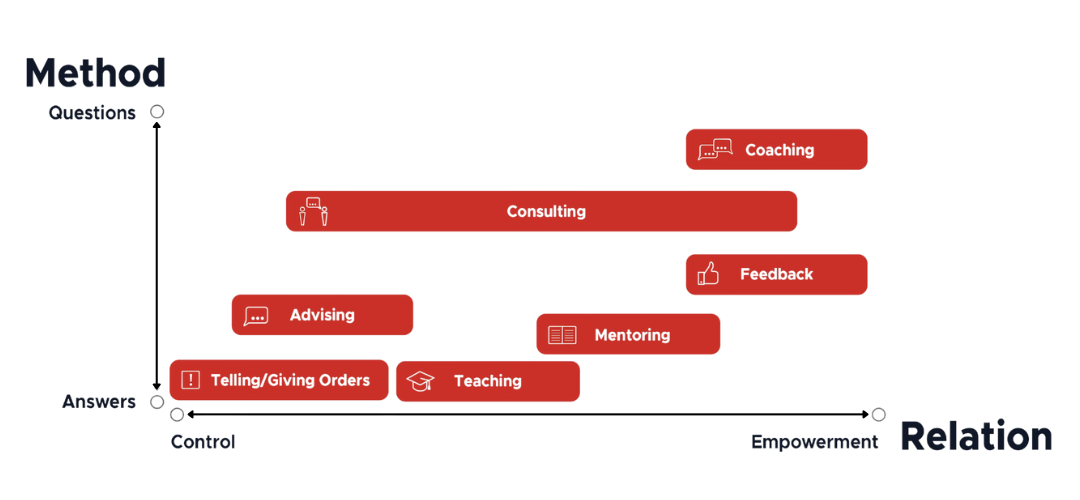At Session, our aim is to democratize coaching and make it accessible to all. But what is it we are trying to democratize? What is professional business coaching? In this article, we take a look at the etymology of coaching, before discussing what professional coaching encompasses. We delve into the coaching services (including life and business coaching services) available and what to choose to help people in modern organizations learn, develop, grow, thrive, and drive business results in modern organizations.
The Etymology of Coaching
The word ‘coach’ was first attributed to a bus around 1550 - a carrier transporting you from one place to the other. It was the word for a “large kind of four-wheeled, covered carriage”.
The etymology of the name ‘coach’ sprung from where the vehicle was invented, Kocsi (carriage), Hungary. Later, in 1866, the word was applied to railway passenger cars and, in 1949, the word started being applied as a sense of “economy or tourist class”, or, in short, as the name for a bus transporting people a longer distance.
Around 1830, the word appeared as slang for a private tutor who “carried” a student through an exam at Oxford University. That is precisely when ‘coaching’ became associated with extracurricular teaching. Later, (first attested in 1861), the word was extended to include sports coaching, where the coach helped athletes get ready to do their best when it counted.
Now, coaching is applied to a wide area of fields, from sports to performing arts, acting, education, dating, and business. In all areas, the etymology points to the association of coaching as a journey where people are guided through a process of development and improvement from where they are to where they could be or want to be.
Coaching in the Business World: The Bill Campbell Story
“The Trillion-dollar Coach” by Eric Schmidt, Jonathan Rosenberg, and Alan Eagle is most relevant to the theme of this article. In this book Bill Campbell is praised and described as the coach who helped build some of Silicon Valley's greatest companies. He is a good example of a professional coach delivering immeasurable value with incredible subtlety.
On the back cover, there is a perfect description of business coaching:
“From their vantage points at Google, Eric Schmidt, Jonathan Rosenberg, and Alan Eagle experienced first-hand how Bill developed trusting relationships, fostered personal growth, infused courage, emphasized operational excellence, and identified tensions that inevitably arise in fast-moving environments. The result is a blueprint for forward-thinking business leaders and managers that will help them create higher-performing and faster-moving teams and companies”.
This quote highlights some key qualifications of a great coach: Someone who can develop trust, personal growth, and courage. But also someone who can help employees drive change, navigate in fast-growing and ever-changing environments, as well as solve conflicts arising on the way.
How does the International Coaching Federation define coaching?
“ICF defines coaching as partnering with clients in a thought-provoking and creative process that inspires them to maximize their personal and professional potential.”
This definition encapsulates all kinds of coaching types (Life, Business, Career, and Executive Coaching) as well as methodologies (for instance cognitive, solution-focused, systemic, narrative coaching).
What all coaches have in common is the ability to design a process, known as a coaching journey, that takes a client through relevant steps to success in a meaningful and structured way. This journey is facilitated by the coach’s capacity to ask thought-provoking, relevant questions that create developmental opportunities.
The Art of Asking (a lot! of) Questions
A vital cog in coaching education is learning how to ask engaging, exploratory, challenging, and timely questions. The aim is to empathetically encourage clients to look at their own - and others - situations from a different perspective and guide them through a transformative process.
The coach instills the confidence to help clients think for themselves, find creative solutions and answers to problems. They empower clients to make brave, educated decisions for the future. Choosing stirring questions is a skill that takes years of education and experience and while coaches may bear the brunt of some jokes, never underestimate the power of well-put questions.
A coach helps people reflect, think for themselves, make their own educated decisions, and find new, strategic, and sustainable ways of doing things.
Forbes is no stranger to powerfully evocative questions. As journalists, they understand what a question can reveal and interviewed the top business coaches in the industry to grasp what questions work:
- What is standing in your way?
- What are you doing to NOT achieve your goal?
- What do you want and how can you make that happen?
- What will happen if you don’t take this step?
- What are we missing here?
- What do you see and sense?
- What will things look like after you have been successful?
Coaching is, however, not only about asking questions. Through the process, a coach might offer advice if they sense a person could benefit from a blunt opinion. They might also encourage them to get concrete training and education in areas where they may lack knowledge, insight, or hands-on experience. This opens entirely new avenues of growth in a safe nurturing environment allowing clients to experience other possibilities. Later in this article we explore the difference between feedback, mentoring, education, consulting, and coaching and the greyzone of coaching. Coaches need to judge from case to case, what is needed right now - a good question or a good advice?
Defining Professional Business Coaching
The specific aim of professional business or corporate coaching is to help leaders and employees develop and grow so that their skill sets, mindsets and behavior matches the needs of their organization. This aim helps future-proof employees and equips them with the skills to maintain growth in the face of change. Our definition of Business Coaching is the following:
“Professional business coaching is the art of helping leaders and employees develop, grow and thrive as well as drive their business in a desired direction.”
The focus of professional business coaches is to help the client grow in areas that enable the successful delivery of tangible business-critical goals. This focus forces the coach and client to pinpoint goals which - when fulfilled - will elevate their entire organization (not just the client).
This is where business coaching differs the most from life coaching, where the prime focus is on personal benefits for the client.
Skillsets of Professional Business Coaches
To succeed, professional business coaches must have elite business acumen - defined as:
“keenness and quickness in understanding and dealing with a "business situation" in a manner that is likely to lead to a good outcome”.
The most frequently employed competencies of professional business coaches include:
- Understanding organizational political dynamics.
- Being knowledgeable in what it takes to lead and work in modern organizations.
- Fluency in business jargon and organizational structures.
- Knowing how to diagnose and lead in strategic issues, emerging trends and how individuals and organizations position themselves in the market.
- Developing scenarios tailored to lived experiences of clients empowering them for the future.
- Offering realistic, tangible, and applicable benefits for a valuable ROI.
Professional business coaches empower clients to try out learned behavior so that learning does not “just” stay in the coaching room but becomes relevant and “proven” in the real-life business context. This brings the tangible and applicable benefits directly into the workplace. It ensures that both the employee and organization witness solid returns on their investment.
Defining Life Coaching
Collectively, we have grown to appreciate continued self-development much more in the last decade. This has invited exciting new avenues of coaching while also causing confusion in who to turn to for the right support. When needing guidance and direction, we are often asking “Are life coaches and business coaches the same? What are the differences? Who do I go to?”
Life coaching, while valuable to many, is a different discipline from professional business coaching. Life coaching focuses on the self. It is the job of a life coach to employ a holistic approach in getting people back on track with their lives. This is achieved by bridging personal gaps between the individual and their aspirations, values, needs, and goals.
The coach takes a deep dive assessing each area of an individual’s personal life such as relationships, habits, circumstances, jobs, and opportunities. Once the assessment is complete, they help clients to overcome obstacles and set goals and strategies designed to realize their potential.
While something doesn’t have to have gone wrong, most people will turn to a life coach to curtail a downward spiral of disillusionment. Life coaches offer a fresh perspective and are experienced in solving personal issues and seeing the light through the trees.
For many it means rebuilding confidence, letting go of fears, organizing financial affairs, or reconnecting with friends and family. Life coaches bridge the gap between current and desired life satisfaction for the individual. Tony Robbins is considered to be the most famous life coach in the world.
The Difference between Professional Business Coaching and Life Coaching
As you can tell by now many skills such as trust-building, accessing and solving problems, and mapping routes to success are shared between professional business coaches and life coaches but critically, the focus and intentions differ.
Life coaching focuses internally on an individual. What matters to their lives on a holistic level? What are they struggling with and what holds them back from unfettered happiness and satisfaction?
Professional business coaching occasionally deciphers these questions if it matters to the success of a company overall. Business coaching is the process of steering an employee, manager, or senior executive toward achieving clarity, opportunity, and a tangible business ROI whilst also correcting performance impacting matters. This may take the form of addressing and overcoming personal issues, skill deficiencies, and any other matters of friction between the employee and the larger organizational success.
What Coaching is Not: Coaching vs Teaching vs Mentoring vs Consulting
There is a fine line between being a consultant, teacher, or mentor, and being a coach. If the role is centered around answering questions and sharing expert knowledge; consider it consulting, teaching, or mentoring. Under these circumstances, the expert heavily controls the interaction, making it significantly different from coaching.
On the contrary, a coach is less concerned about taking control and answering questions, and more interested in empowering the people they collaborate with. This can best be depicted in the figure below:

Summing up
21st-century citizens and businesses are awash with opportunities to pursue goals for the betterment of ourselves and our societies. As we plot a course through life and as our businesses grow and mature, the guidance of an experienced hand might be the difference between a journey through which we survive or thrive. A coach can help empower you to achieve new skills, attain a new level of success and help your business grow and mature in a sustainable way.
In life, careers, and business success; nobody gets there alone. With a professional business coach, walking the path with you, helping you, nudging you, guiding you when needed, you will most likely find the path smoother, easier to navigate as well as more beautiful. At Session, we are ready to team up with you and your colleagues. Reach out to learn more.












